What That Last Brownie Really Means in 'Notting Hill'
Or: What many of us get wrong about one of the greatest romantic comedies ever made
Let’s begin with a thought experiment. Presuming you’ve seen Notting Hill (1999), how would you describe its story? Take a moment to consider your answer, then continue reading.
Notting Hill was released 25 years ago. It was an immediate hit, both with audiences and critics, and, thanks in part to its positioning as alternative programming to Star Wars: The Phantom Menace, raked in an astounding (for a romantic comedy) nine figures at the U.S. box office alone. Its screenwriter Richard Curtis had previously written Four Weddings and a Funeral (1994), which was a huge international hit, too, and, like Notting Hill, starred Hugh Grant as bookshop owner Will Thacker. Both also featured a female American co-lead who arrives and shakes up the buttoned-up, deeply repressed life of an average English bloke; in the case of Four Weddings, it was Andie MacDowell playing a sexually adventurous Yank and, in the case of Notting Hill, the biggest actress in the world Julia Roberts literally playing the biggest actress in the world - Anna Scott.
This all might seem like a bit too much context for a screenwriting article, but I think it’s important because Curtis crafted two very successful films in five years about repressed Englishmen being set free from their cultural chains by sexy Americans who crash-landed in their lives – each starring Grant who has, more recently, joked that he also basically delivered the same stammering performance in both parts.
If you asked most people in the film business about these films’ similarities, I expect they would pretty much describe them as I just did.
But here’s the thing: they’re all wrong.
Now, let’s return to that question I asked you at the top of this article: how would you describe Notting Hill’s story?
I’ve asked around, both friends and professional filmmakers, to see how they answered this question. There was some variation in responses – screenwriters tended to be more even-handed in their assessment of the central characters’ emotional motivations and story arcs – but even here, they mostly still echoed what I expect your response sounds like.
I don’t want to put words in your mouth, but here’s what I bet you said some version of:
Notting Hill is the story of an average guy who wins the romantic lottery when he falls in love with a goddess - the most beautiful and famous actress in the world.
This is how the film was marketed. It’s how the trailer sells the story. It’s what the poster conveys to you, too.
But while this seems true – and I’m not arguing that it isn’t to a degree – this summary, nor the one I shared paralleling Notting Hill with Four Weddings and a Funeral, stand up to scrutiny as far as I’m concerned. When you dig in, when you study what’s happening in every scene, you begin to realize this is what Notting Hill is actually about:
Notting Hill is the story of a goddess, desperate to escape her gilded cage for something real, who meets and falls in love with a mortal who could set her free.
Because Notting Hill isn’t Will Thacker’s story, not really.
It’s Anna Scott’s.
Yes, this might seem semantical — it’s the story of two characters falling in love, after all — but if you flip the script this way, you discover the heart of the film isn’t our pathetic everyman, as it is in Four Weddings and a Funeral, but an emotionally broken goddess who craves the life of mortal men but has come to distrust how mortals perceive and interact with the divine – her.
Will Thacker (Hugh Grant), the guy you’re supposed to be able to imagine yourself as in this situation, doesn’t even have a character arc that I think can be described much more accurately than “to find the love he so desperately yearns for since his wife left him.” In this regard, Will actually plays the shallow role of so many female characters in romantic comedies over the years - such as Andie MacDowell’s Carrie in Four Weddings and a Funeral. His whole story is about validating his existence through the love of another. I’ve seen the film fifteen times, and I can identify no inner life to his character beyond “perpetually broken-hearted”.
By contrast, Anna Scott has a complicated inner life that Julia Roberts dramatizes with a very meta-flair. You often wonder how much Roberts is injecting the part with her own pathos after more than fifteen years in the acting game (interestingly, Roberts even went on to marry an everyman and remains married to him today).
Anna has succumbed to every pressure and cliché about the Hollywood actress, right down to altering her appearance. She is endlessly objectified, which becomes apparent after nude photos are leaked. She lives in a constant state of emotionally self-destructive shame that periodically manifests as anger and extreme meanness. All she wants is to be seen for who she really is, but her problem is that she doesn’t believe anyone will find who she really is as interesting or lovable as the fictional her they see on their screens and magazine covers. This duality is embodied in a post-coital bedroom scene when Anna tells Will about how Rita Hayworth once said that men went to bed with “Gilda” – her most famous role – and woke up with the real her. She then insecurely asks him how he feels now that he’s gone to bed and woke up with her.
Because Anna needs Will to love the real her.
What is the value in inverting how you look at Notting Hill? Well, the chief reason is to better understand why the film works so well in the first place. As Will has only the sparsest of character arcs and his role is almost entirely defined by Hugh Grant’s performance rather than anything on the screenplay page, it falls on Anna Scott to provide meaning to the whole relationship. Sure, we all want to fall in love with something otherworldly – it’s part of the reason we’ve idolized celebrities for so long – but the film would’ve landed like a hundred-ton block of lead in the cultural discourse if not for Anna’s emotional journey.
She’s the character we follow, the one we care about the most, the one whose transformation leaves us, the audience, feeling transformed in some way, too.
There’s a key scene in the film that makes this clear. In fact, I think it’s probably the film’s best scene of any kind (despite how much, yes, I love the “I’m just a girl” monologue). It arrives almost immediately after the Act 1 Turn and represents a significant perspective shift in the film.
Up until this point, the whole film has been told from the POV of Will, the everyman who has accidentally crossed paths with the divine. The reason why Anna has opted to remain in his orbit after their chance meeting in his bookshop and again on Portobello Road has been withheld – our only guess is she’s charmed by Will’s bumbling and stammering in some way – but when she joins him for his sister’s birthday dinner, everything changes thanks to Roger Michell’s extraordinarily understated direction for an ostensibly “Hollywood” rom-com.
That’s because the story shifts to Anna’s perspective.
From the moment that she and Will arrive at Will’s friends’ house for the dinner party, we experience every moment but one from her POV. This dinner isn’t just a first date. It’s a test. Anna, the goddess, has descended from Mount Olympus to dine with these mere mortals. The reason why she’s done this is that Will seems too good to be true to her. His sincerity, his apparent decency – his kindness – must be an act. A charade just to get in her knickers. Here, she’ll out him for the fraud he is.
Let’s look at the now-famous “last brownie scene”. Before I go on, why don’t you give it a watch? Please forgive this obnoxious thumbnail image.
Back? Great. Thankfully, this clip starts just before the scene in question. As you can see, Anna and how she experiences this dinner is the focus. Michell’s direction makes that clear. Also clear, this dinner isn’t just a test of Will. It’s a test of his friends who are part of his world. How will they treat the goddess? If she sticks around, if she remains in their mortal world, will they secretly worship her or can she finally reveal who she actually is?
In fact, that’s what she does - reveal herself. In order to claim the last brownie, she tells her own sad sack story about her lack of talent, her abusive ex-boyfriends, and her many plastic surgeries to look as “beautiful” as she does. She hides nothing. How will they react?
They take the piss out of her is what they do - just like they have each other all night long. They mock her “pathetic” attempt to claim the last brownie, giving it to pathetic Will instead. Translation: if Anna remains, she will never be more than “just one of them”. She will never be Anna Scott the movie star; she’ll forever be plain old Anna.
But I want you to go back to 01:57 in this clip now. Watch as the character of Bella, played by Gina McKee, bemoans her own “patheticness” to claim the final brownie. Bella is a paraplegic, though we don’t know why yet. As she lists off her issues, she finally comes to a revelation for her closest friends – she and her husband, sitting across from her, have just learned they won’t be able to have a biological child. It’s devastating, heart-breaking news to deliver and McKee utterly slays this scene.
Pay attention to what happens, though, when she says, “Well, the truth is, we can’t have a baby.”
The next cut is not to any of her closest friends or husband.
It’s to Anna and her reaction.
But where does she immediately look (the next shot)?
At Will – to see how he reacts to this news.
This is his final test, even if he doesn’t realize it. Will he react from a place of authentic anguish? How will we react? Will he be the man she desperately needs him to be if she is to ever be saved?
Will is, of course, devastated. And speechless. He then — and this is so important — allows himself to become a sacrificial lamb to save Bella from being the most pathetic friend at the table. He will be more pathetic than her to save her from the pain of this moment, or as much as he can.
It’s…I mean…Jesus…this scene is perfect, in my mind. You should study it. You should watch every edit and scream at how perfectly they lead your eyes and your heart through it.
At the end of the day, maybe you know all of this already. Maybe you didn’t, and I’ve just blown your mind. Maybe you’ll hit like in a moment and, when you sit down and watch a different film, you’ll discover you were able to see some new things in how and why the story is being told like it is. Maybe you’ll rewatch Notting Hill tonight and remember something I shout about whenever I get the opportunity – this is one of the greatest romantic comedies ever made and, fuck me, I wish they still made rom-coms like it.
Read Richard Curtis’s screenplay for Notting Hill here.
If this article added anything to your life but you’re not up for a paid subscription, consider buying me a “coffee” so I can keep as much of this newsletter free as possible for the dreamers who couldn’t afford it otherwise.
If you enjoyed this particular article, these other three might also prove of interest to you:




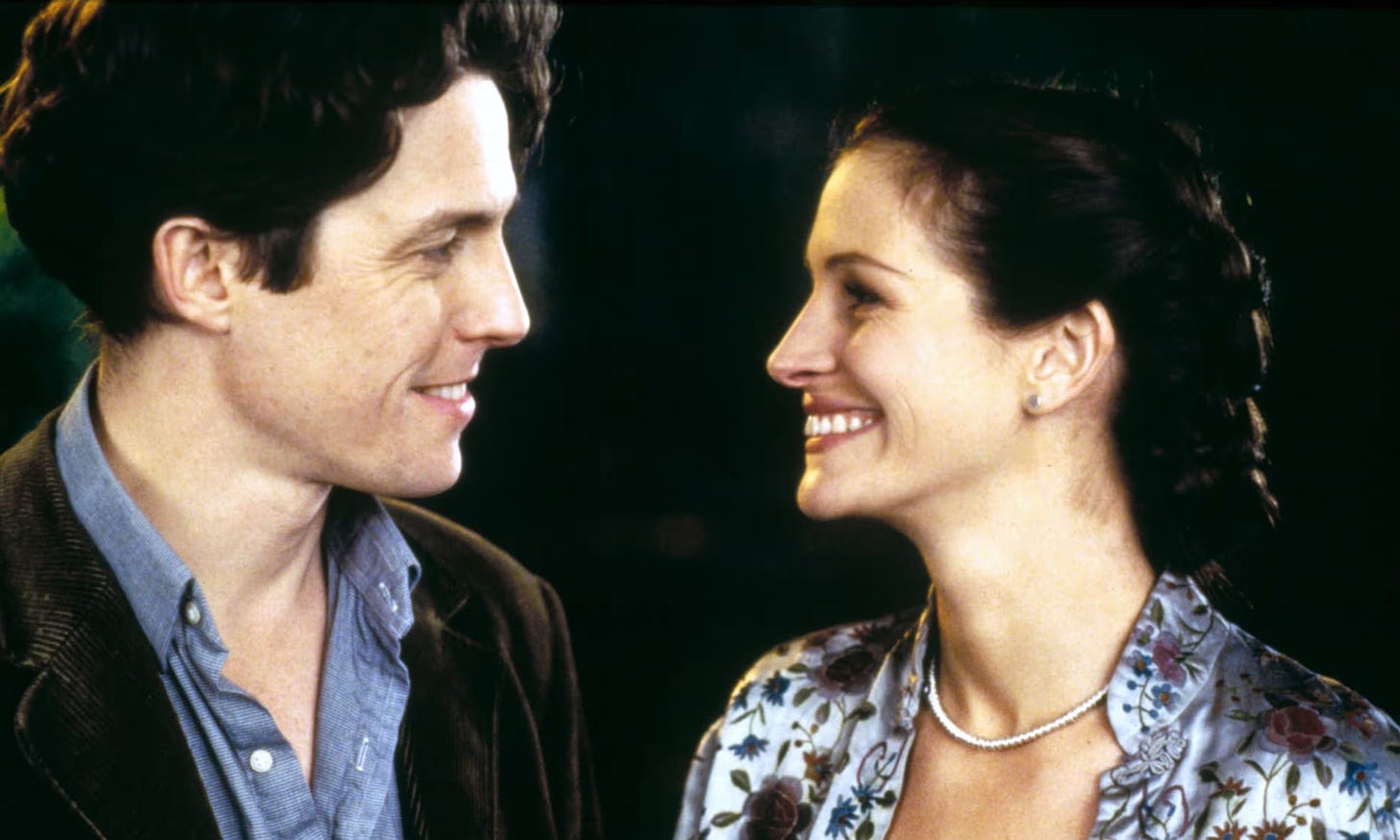

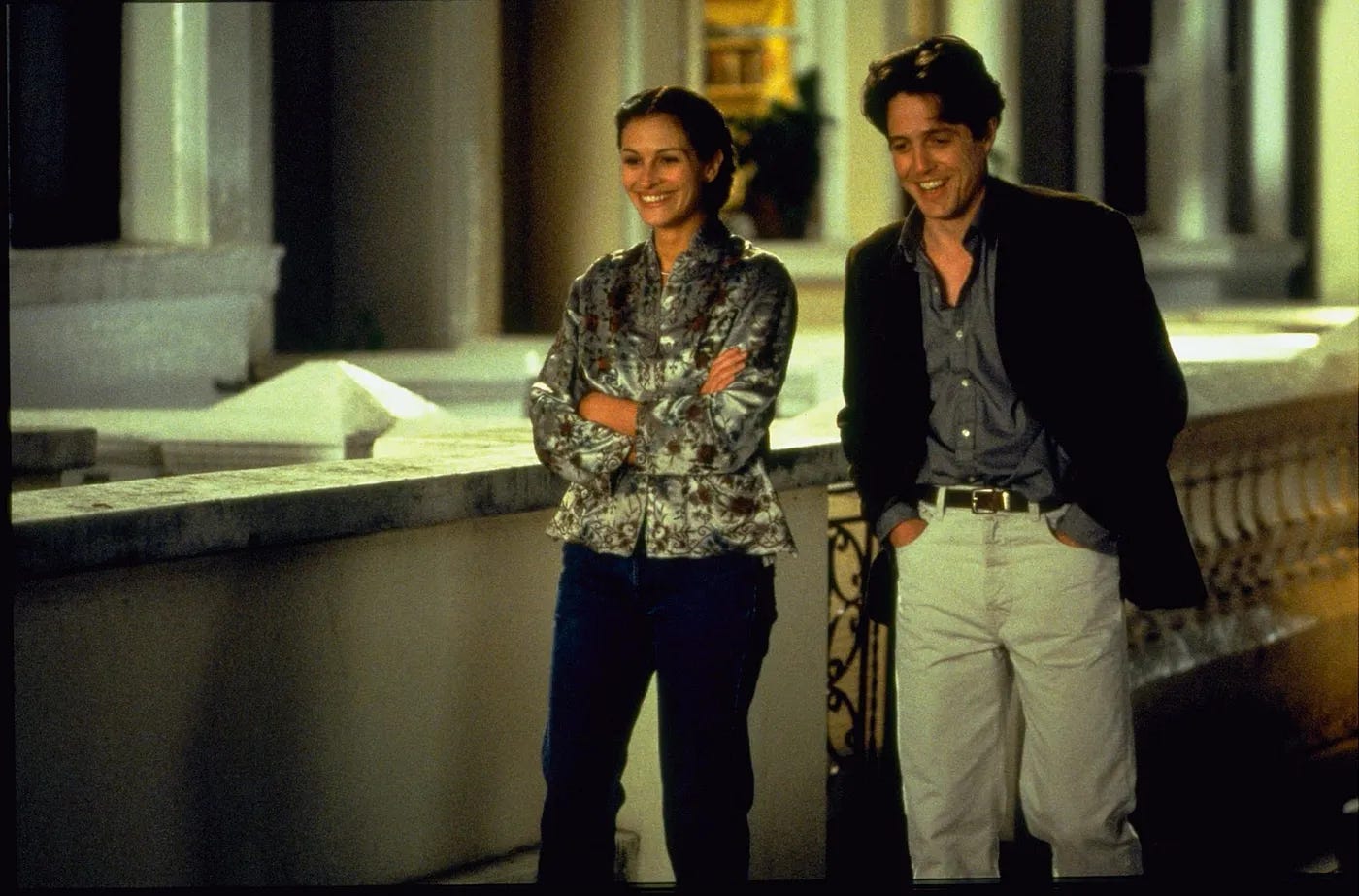
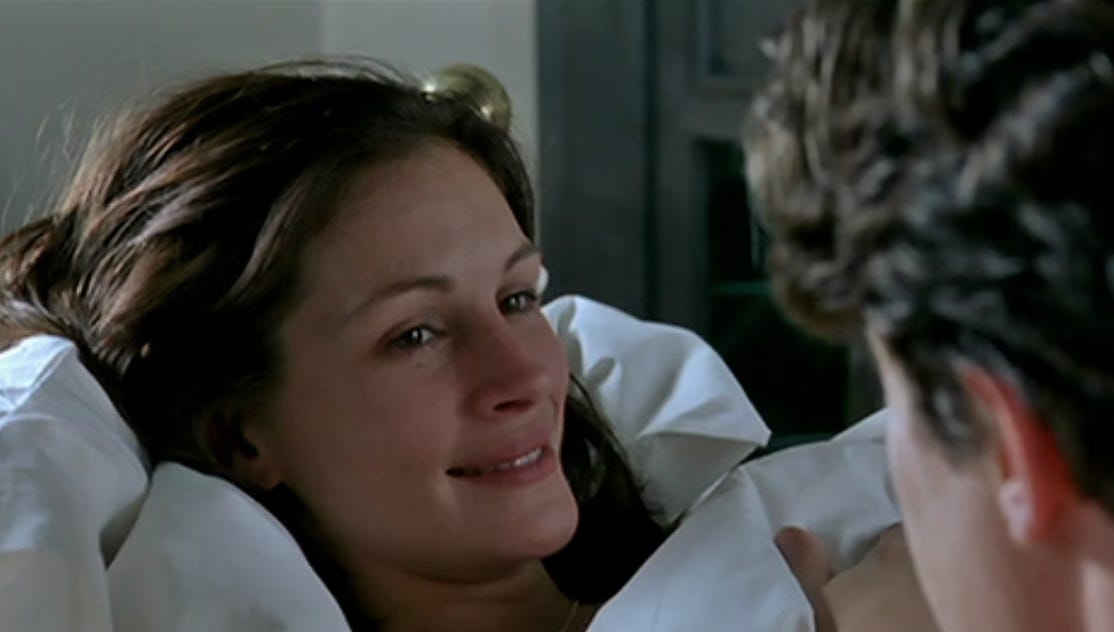
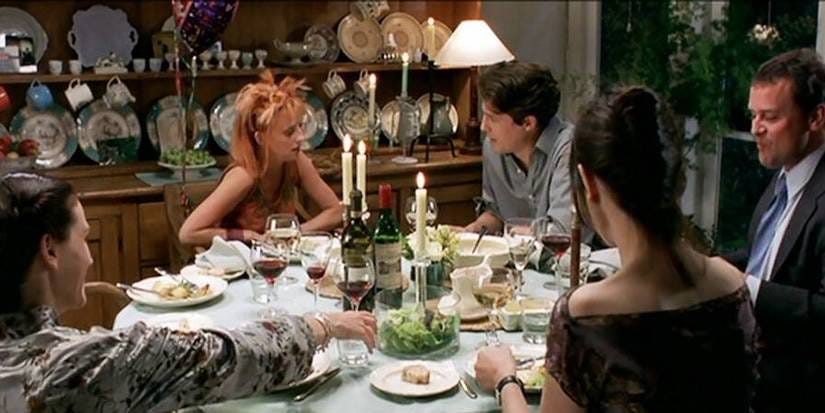
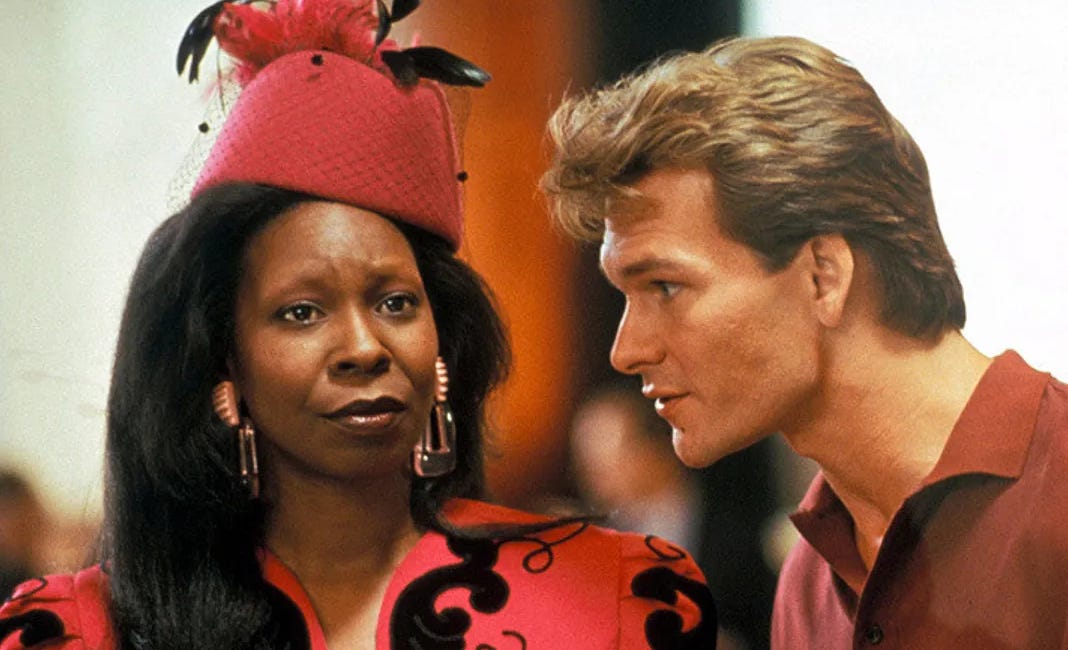
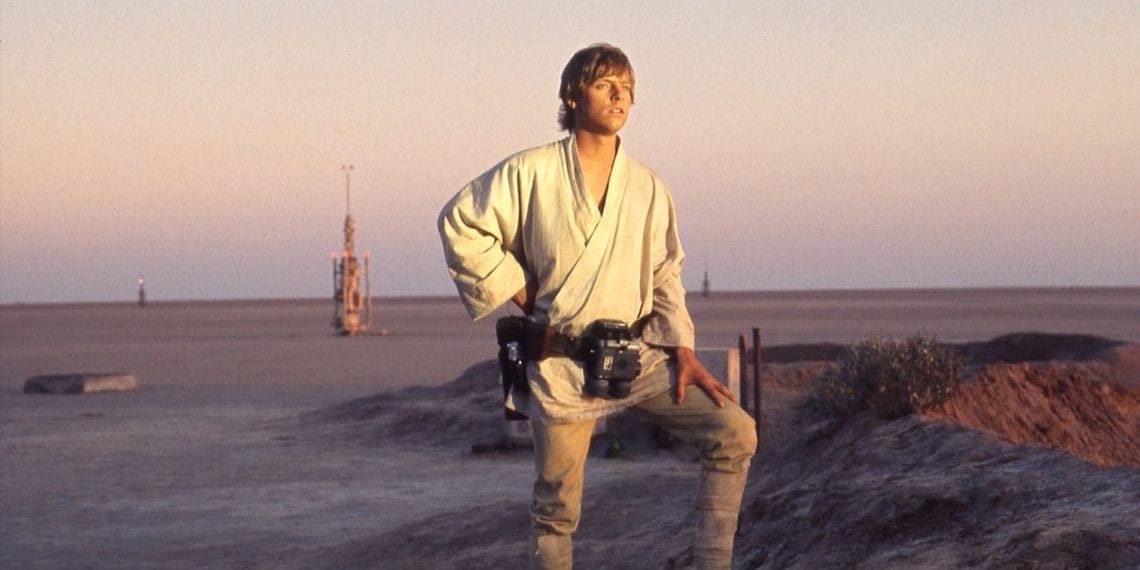
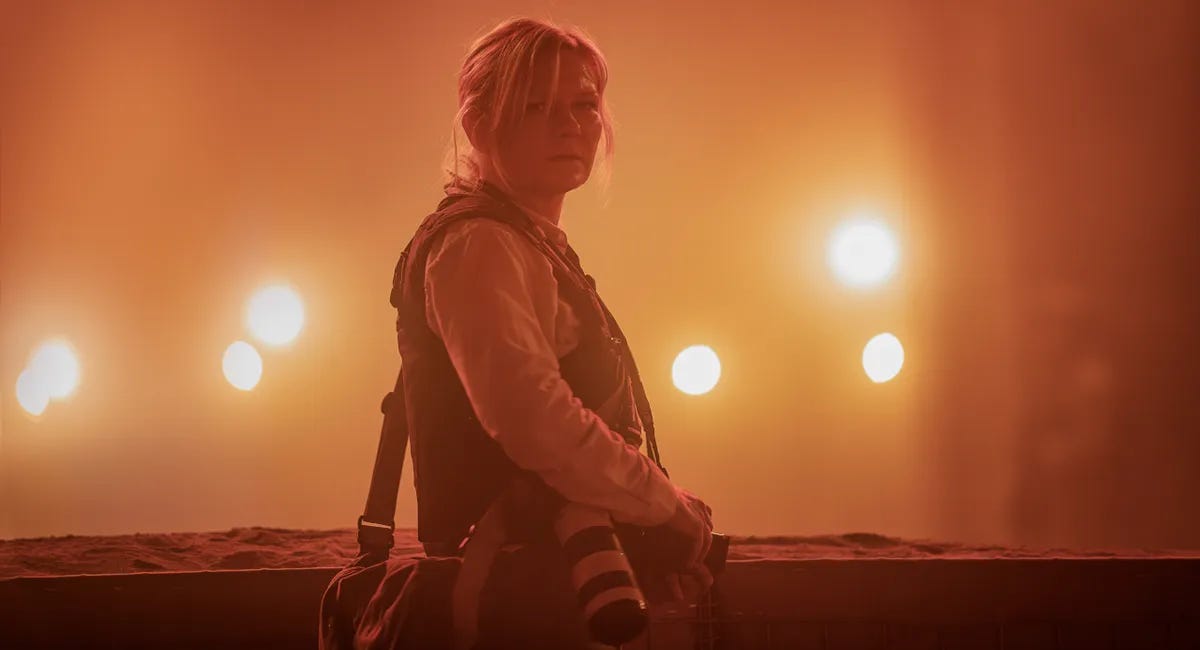
YESSS your brilliant take on Anna’s lead arc now seems obvious.
Q: do many films begin with one protagonist and switch POV midway?
“this is one of the greatest romantic comedies ever made and, fuck me, I wish they still made rom-coms like it.”
How can we make that happen? Are great rom-com scripts being written out there?
I never really understood why I liked this film as much as I did at the time. I think you just explained what's so compelling about it. So much more than just a collection of great lines.